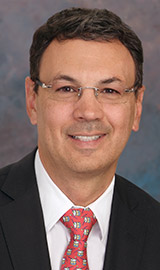2025 Research Grant Recipients
Sheeraz Qureshi, MD, MBA
Hospital for Special Surgery
The Use of Platelet Rich Plasma for Prevention of Post-Operative Lumbar Radiculopathy After Microdiscectomy: A Randomized Controlled Trial
Juan Uribe, MD
Barrow Neurological Institute
Immersive Virtual Reality Training for Endoscopic Spine Surgery: A Scalable Solution to Advance Minimally Invasive Education
Grant Description
Minimally Invasive Spine Surgery
- New or novel ideas or concepts in or around the field of minimally invasive spine surgery
Grant Amount
Two (2) grants will be awarded with a maximum value up to $20,000 USD each.
Grant Conditions
- Project duration can be up to two years.
- Funds may only be distributed to an active SMISS members’ institution.
- An active SMISS member must be listed as the Principal Investigator OR as a Co-Investigator.
- Funds will be distributed on a timeline:
- 50% at signature
- 25% at mid-point with a report required
- 25% at completion of research with final report submitted to SMISS and proof of manuscript submission.
A report EVERY 6 months to the SMISS Research Committee is required. The authors should be prepared to present their research at the SMISS Annual Forum or an update until research is complete.
Eligible Expenses
Grant funds may be used for direct research costs, including but not limited to:
- Laboratory supplies and reagents
- Statistical analysis and data management
- Research-related software
- Equipment essential to the research project (subject to approval)
- Salary support for research assistants or technicians (not to exceed 25% of total award
Ineligible Expenses
Grant funds may not be used for:
- Principal investigator (PI) or co-investigator salary support
- Institutional overhead or indirect costs
- General office supplies or furniture
- Publication fees unless pre-approved and directly related to grant-funded research
- Travel and meeting registration fees
- Computers or other capital expenses
- Membership fees or professional society dues
Questions? Contact nhenkel@broad-water.com

